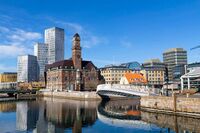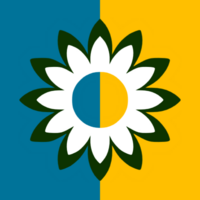Port Quahin: Difference between revisions
No edit summary |
No edit summary |
||
| Line 106: | Line 106: | ||
==History== | ==History== | ||
It was founded in mid-1550 by migrants from the region of [[Figtízia]], but for a long time it was a fishing village that depended on fishing for crustaceans and other seafood, but after the arrival of immigrants from [[Wassilia]] the city began to grow and quickly became one of the most industrialized in the country in the 19th century, second only to [[Almaju]], currently the shipbuilding and fishing industries dominate the city's economy | |||
==Demographics== | ==Demographics== | ||
Revision as of 20:19, 2 April 2023
This article is incomplete because it is pending further input from participants, or it is a work-in-progress by one author. Please comment on this article's talk page to share your input, comments and questions. Note: To contribute to this article, you may need to seek help from the author(s) of this page. |
Port Quahin
Porttare Quahin | |
|---|---|
City | |
 View of Port Quahin from the Quahin River | |
| Nickname: City of Crabs | |
| Motto(s): Breza e Passe . "Breeze and Peace" | |
| Country | Mygona |
| Founded by | Figtízians |
| Government | |
| • Body | Prefecture of Port Quahin |
| • Mayor | Gojadiro Temasko (PLM) |
| Elevation | 23 m (75 ft) |
| Population | |
| • Total | 1,426,927 |
| Demonym | Quahinian |
| Time zone | UTC+5 (UTC) |
Port Quahin or Porttare Quahin in mygonese is the third largest Mygonese city, it is also the capital and largest city of the province of Kecost, it is located in the northwest region of the country and in the western part of the province, the Quahin River cuts through the city and flows into the Sunadic Ocean, has a population of 1,426,927 and its metropolitan area has around 2,326,817 inhabitants, making it the third largest metropolitan region in the country. It has a humid continental climate with a lot of rain in the summer and little snow in the winter.
History
It was founded in mid-1550 by migrants from the region of Figtízia, but for a long time it was a fishing village that depended on fishing for crustaceans and other seafood, but after the arrival of immigrants from Wassilia the city began to grow and quickly became one of the most industrialized in the country in the 19th century, second only to Almaju, currently the shipbuilding and fishing industries dominate the city's economy
Demographics
Economy
Government
Sisters Cities
Yonuw is twinned with the following cities.
